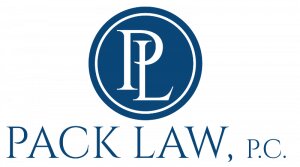Best Bankruptcy Lawyers in Missouri
Share your needs with us, get contacted by law firms.
Free. Takes 2 min.
Or refine your search by selecting a city:
List of the best lawyers in Missouri, United States
About Bankruptcy Law in Missouri, United States
Bankruptcy law is a legal process designed to help individuals and businesses get relief from overwhelming debt while providing a fair process for creditors to be repaid. In Missouri, bankruptcy cases are primarily handled through the federal court system, as bankruptcy is governed by federal law under the United States Bankruptcy Code. However, certain aspects such as exemptions, qualification requirements, and property definitions can vary at the state level. Missouri residents seeking bankruptcy protection have specific state rules and regulations to consider alongside federal law.
Why You May Need a Lawyer
Filing for bankruptcy is a complex process with significant financial and legal consequences. Here are some common situations where legal help may be necessary:
- If you are facing foreclosure on your home or repossession of your vehicle and want to understand your options for protecting your property
- If you have substantial unsecured debts such as credit cards or medical bills and are unable to make payments
- If you are being harassed by creditors or threatened with lawsuits, wage garnishments, or bank levies
- If you are a small business owner with debts you cannot pay and are considering closing or restructuring your business
- If your financial situation involves complicated assets, recent transfers, or you are worried about meeting the requirements for bankruptcy discharge
- If you want to understand how filing bankruptcy will impact your credit, future housing, or employment opportunities
An experienced bankruptcy lawyer can help you choose the right type of bankruptcy, avoid costly mistakes, navigate court procedures, and maximize your protections under the law.
Local Laws Overview
While bankruptcy is a federal process, several state-specific laws and rules affect how bankruptcy operates in Missouri:
- Exemptions: Missouri law determines what property you can protect from creditors in bankruptcy. Missouri has its own set of exemptions, which means you cannot use federal bankruptcy exemptions.
- Homestead Exemption: Missouri law allows you to exempt up to $15,000 of equity in your primary residence. Certain restrictions apply, and the exemption amount may be higher if spouses file jointly.
- Personal Property Exemptions: Exemptions exist for personal belongings such as vehicles (up to $3,000 in equity), household goods, jewelry, tools of trade, and more, each with specific limits.
- Means Test: Like all states, Missouri uses the federal means test to determine eligibility for Chapter 7 bankruptcy. This test considers your income and expenses to evaluate if you qualify for debt forgiveness.
- Mandatory Credit Counseling: Debtors must complete credit counseling from an approved provider before filing and a debtor education course before debts can be discharged.
- Bankruptcy Court: All bankruptcy cases in Missouri are filed in federal court, either in the Eastern or Western District depending on where you live.
Frequently Asked Questions
What types of bankruptcy are available in Missouri?
The two most common types are Chapter 7, which allows for liquidation of assets to pay off debts, and Chapter 13, which involves a repayment plan over three to five years. There are also provisions for Chapter 11 (business reorganization) and Chapter 12 (for family farmers and fishermen).
Will I lose my home or car if I file for bankruptcy in Missouri?
Missouri law protects certain amounts of equity in your home and car through exemptions. If your equity is within the exemption limits, you can generally keep these items. If the equity exceeds the exemption, the asset could potentially be sold to pay creditors in a Chapter 7 case.
How long does the bankruptcy process take?
A typical Chapter 7 bankruptcy can be completed in three to six months. Chapter 13 cases last between three and five years, depending on the terms of your repayment plan.
Can bankruptcy stop creditor harassment and collection activity?
Yes, once you file for bankruptcy, an automatic stay goes into effect which stops most collection actions, including phone calls, lawsuits, wage garnishments, and foreclosures.
Will bankruptcy eliminate all my debts?
Most unsecured debts, such as credit card bills and medical expenses, can be discharged. However, some debts, such as student loans, certain taxes, alimony, and child support, are typically not dischargeable.
Can both spouses file for bankruptcy together?
Married couples can file jointly or separately. A joint filing may make sense if both spouses are liable for significant debts, but it is not required that both file together.
How does bankruptcy affect my credit?
Bankruptcy will be listed on your credit report for up to ten years for Chapter 7 and up to seven years for Chapter 13. Although it will impact your credit, many people can qualify for new credit and begin rebuilding their financial health soon after discharge.
Do I need a lawyer to file for bankruptcy in Missouri?
You are not legally required to have a lawyer, but bankruptcy law is complex and mistakes can be costly. A lawyer can help ensure your paperwork is correct, your exemptions are maximized, and all procedures are properly followed.
Are there any debts I cannot get rid of in bankruptcy?
Yes, debts such as child support, recent tax debts, most student loans, debts from fraud, and court fines cannot usually be discharged.
How much does it cost to file for bankruptcy?
The court filing fee for Chapter 7 is currently $338. For Chapter 13, it is $313. Attorney fees are additional and vary depending on the complexity of the case and the attorney you hire.
Additional Resources
If you need more information or assistance with bankruptcy in Missouri, consider these resources:
- United States Bankruptcy Court for the Eastern and Western Districts of Missouri
- Missouri Bar Association Lawyer Referral Service
- Missouri Legal Services (offering free and low-cost legal help to eligible individuals)
- Consumer Credit Counseling Agencies approved by the U.S. Trustee for pre-bankruptcy counseling
- National Association of Consumer Bankruptcy Attorneys (for finding experienced bankruptcy attorneys)
Next Steps
If you are considering bankruptcy or facing creditor actions, start by gathering information about your debts, assets, income, and expenses. Schedule a consultation with a qualified bankruptcy attorney in Missouri who can help evaluate your options and walk you through the process. Remember to complete required credit counseling from an approved agency before filing. Keep records of all communications regarding your debts and avoid transferring or selling assets unless you have consulted with a legal professional. Acting promptly and with good guidance can help you protect your rights and work toward a fresh financial start.
Lawzana helps you find the best lawyers and law firms in Missouri through a curated and pre-screened list of qualified legal professionals. Our platform offers rankings and detailed profiles of attorneys and law firms, allowing you to compare based on practice areas, including Bankruptcy, experience, and client feedback.
Each profile includes a description of the firm's areas of practice, client reviews, team members and partners, year of establishment, spoken languages, office locations, contact information, social media presence, and any published articles or resources. Most firms on our platform speak English and are experienced in both local and international legal matters.
Get a quote from top-rated law firms in Missouri, United States — quickly, securely, and without unnecessary hassle.
Disclaimer:
The information provided on this page is for general informational purposes only and does not constitute legal advice. While we strive to ensure the accuracy and relevance of the content, legal information may change over time, and interpretations of the law can vary. You should always consult with a qualified legal professional for advice specific to your situation.
We disclaim all liability for actions taken or not taken based on the content of this page. If you believe any information is incorrect or outdated, please contact us, and we will review and update it where appropriate.
Browse bankruptcy law firms by city in Missouri
Refine your search by selecting a city.














